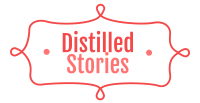Design Thinking: Is the mindset that aims to improve the situation of people through the experiences they have. A problem solving approach that aims to improve people’s experiences.
Users: The people who intereact with the product, service, system etc. that are available or offered.
Enterprise Design Thinking: Is a custom made approach for large, distributed teams to assist them quickly deliver human-centered outcomes to the market.
Tools: Resources that help teams to work and collaborate to yield specific results.
A Focus on User Outcomes: An Enterprise Design Thinking principle that represents putting your users at the center of your work and solving their problems.
Design Research: The practice of inquiry and discovery that builds knowledge, insights and empathy for your users.
Empathy: The action of understanding, being aware of, being sensitive to and experiencing the feelings, thoughts and experience of another.
Restless Reinvention: A principle of Enterprise Design Thinking that represents active continuous testing and learning in order to improve the solution to a problem.
Prototype: A first or early example that is used as a model for what comes later.
Iterate: To change something existing (product/service/etc.) in small or large scale, gradually so as to improve it.
Ideating: The practice of coming up with new ideas.
Playbacks: An Enterprise Design Thinking Key, story-based presentations that bring stakeholders and whole teams together in a safe space to exchange feedback. These are opportunities to tell memorable, human-centered stories that share ideas, prototypes, strategies etc.
Collaborate: Woking collectively towards a shared goal with an open mind to the ideas and feedback of others.
Diverse Empowered Teams: An Enterprise Design Thinking principle that represents that a group of people with varied perspectives, experience, skills and backgrounds more successfully make decisions together and work toward shared goals.
Alignment: A state of agreement and understanding on a group decision that includes follow through on that decision.
Hills: A key of Enterprise Design Thinking , a human focused mission statement that describes a future enablement for a specific user.

